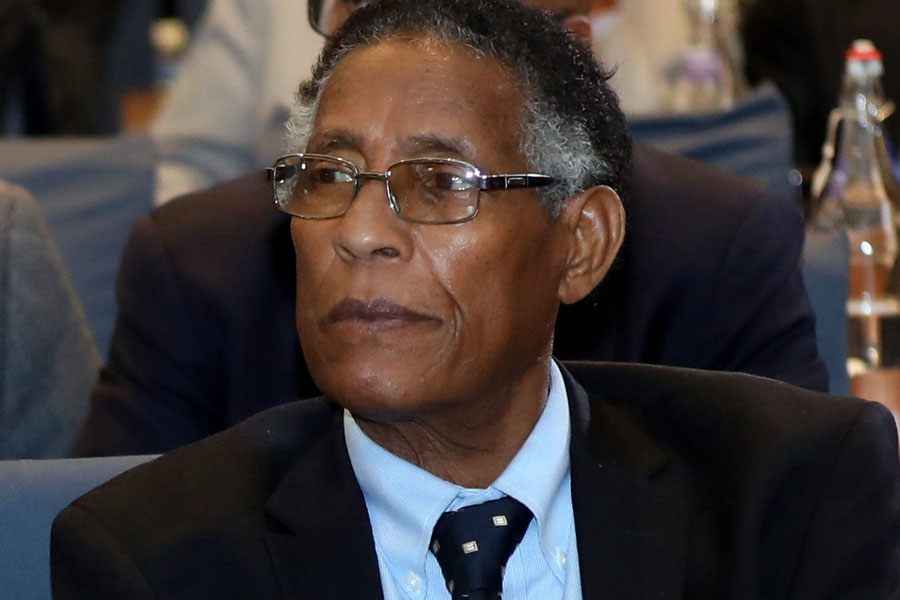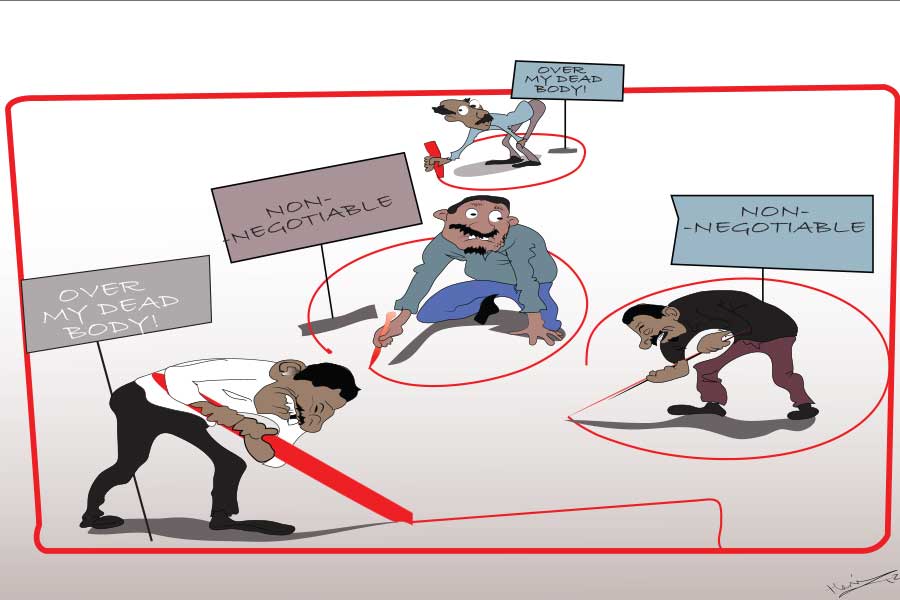
Life Matters | Nov 02,2024
In the aftermath of a scathing performance audit, Ethiopian Electric Power (EEP) finds itself thrust into the spotlight, facing mounting pressure to address systemic failures uncovered by the Office of the Federal Auditor General. Following what was deemed a lacklustre response to the audit findings, the Public Expenditure Administration & Control Affairs Standing Committee at Parliament has mandated EEP to devise an action plan within 30 days.
A series of exchanges between the Committee chairs and senior management of the state-owned enterprise revealed critical issues plaguing EEP. Chairwoman Yeshiemebet Demisse (PhD), stepping into the role after the arrest of former chair Christian Tadele, demands a comprehensive plan reflective of a sincere commitment to rectify raised issues. Acknowledging the weight of the matter, she threatened to dismiss the session in light of the CEO Ashebir Balcha's late appearance who joined mid-session with an apology.
Poor record-keeping, operating without approved directives, mishandling of equipment, coordination deficiencies, theft of valuable items, and prolonged project delays were thrust into the spotlight. Of particular concern was the revelation that EEP had operated without approval for 18 directives and manuals crucial for the supervision of power transmission and distribution projects. This deficiency in oversight raised alarms about compliance with protocols and the ability to execute infrastructure initiatives.
Sumiya Desalew, an MP from the incumbent party, cited a profound concern over what she perceived as a glaring sense of disorganisation to address the persistent concerns voiced by citizens. She noted a discrepancy between EEP's management practices and the timely approval of the necessary legal frameworks to govern its operations and questioned whether such lapses could potentially be constituted as "negligence" and serve as the root cause of the myriad failures.
Citing the Bahir Dar-Weldiya-Kombolcha 400/230KV transmission line project, which incurred an additional 121 million Br over seven years, Sumiya said an absence of structured supervision is observed, particularly in finances.
"What's the point of management if projects are led haphazardly?" she asked.
Although the audit focused on a limited scope of resources provided by EEP from select projects, startling findings emerged on the mismanagement of assets.
Equipment valued at nearly 17 million dollars had been stolen from three projects between 2020 and 2022. On the other hand, only 11 out of 33 projects had been completed on schedule, with the remaining largely attributed to inadequate follow-up procedures.
The audit report uncovered a staggering loss of 1.2 billion Br in potential revenues from domestic power sales and nearly 1.1 million dollars in energy exports due to a lack of synergy between Ethiopian Electric Power and Ethiopian Electric Utility (EEU). Separated 13 years ago, EEU was entrusted with managing electricity distribution and bulk power purchases for resale. However, no agreement record could be found between the two entities, revealing systemic insufficiency.
Abera Taddese, deputy auditor general, said the action plan devised by EEP following the audit's completion in June failed to specify the approval status of the 18 directives outlined in the report. The auditor mentioned that some problems arose from the high costs of power generation and the limited price point upon sale. However, he challenged the failure to conduct environmental impact studies for projects and the officials' disregard for approved designs during construction.
According to Abera, three crucial meetings between—Contractor, Client, Consultant— were not consistently implemented, signalling a lack of effective communication and coordination within the project management framework.
"Feedback from the meetings was not incorporated," Abera said.
Officials sought to address concerns.
Ashebir Balcha, CEO of EEP, said inefficiencies observed in transmission and distribution projects do not detract from EEP's overall standing or its management of strategic endeavours such as the Great Ethiopian Renaissance Dam and Koysha power projects. The importance of promptly approving directives and manuals was stressed by the CEO while assuring that project quality remains uncompromised, aligning with international standards.
According to Ashebir, shortcomings identified in the audit do not amount to criminal conduct. He reassured stakeholders of ongoing efforts to obtain approval for necessary directives and manuals from the overseeing board.
"I'm not denying the audit findings were wrong," Ashebir said. "But there is ongoing progress."
The Standing Committee Chairwoman reiterated the critical importance of principled, rather than merely personal, relationships among officials. She underscored how the lack of such ties had resulted in major financial losses, with over one billion Birr foregone due to strained relationships. The CEO responded that a 1.2 billion Br estimation arose from EEP's assessment of potential revenues if power distribution had been conducted through a proper grid system. He admitted to deficiencies in record-keeping in the realm of right-of-way compensation, which had contributed to the woes.
Ethiopian Electric Power finds itself entrenched in financial liabilities, standing as one of the most indebted public enterprises. Recent data from the Commercial Bank of Ethiopia (CBE) reveals that EEP accounts for nearly 36.9pc of the total outstanding corporate bond balance, nearing 208 billion Br. The substantial debt burden led to its absorption by the Liability & Asset Management Corporation, three years ago.
Habtamu Hailemichael, director general of Public Enterprises Holding & Administration (PEHA), contextualised the audit findings within the broader landscape of political and economic shifts. He said many of the findings predate recent changes in political administration, attributed to the exorbitant costs associated with power generation and the comparatively low selling rates within the sub-Saharan African region.
"Projects will be started only if their source of finance is secured," Habtamu said.
The organisation's strategic initiatives aimed at addressing its financial woes were put forth Executive Officer of Corporate Planning at EEP. Andualem Siae disclosed that comprehensive studies had been undertaken to analyse the cost structure of power generation, with revised tariff rates awaiting approval from the Energy Petroleum Authority (EPA).
He outlined efforts to diversify EEP's revenue streams by expanding into new markets, including neighbouring countries and emerging sectors such as data centres.
"We've done cost projections extending up to four years," he said.
However, Chairwoman Yeshiembet remained unimpressed by the explanations provided. She questioned the depth of the audit's scrutiny, suggesting that the report merely scratched the surface of EEP's extensive operations. She requested a thorough assessment of EEP's performance and governance practices.
"We expect a detailed action plan promptly," she said.
According to Yeshiemebet, closer ties with rural communities to raise awareness about the significance of the electric grid for livelihoods play a role in community engagement in safeguarding assets. She recommended that EEP align itself with nationwide reforms and modernise its technologies for efficient and effective service delivery.
"Every corner of the country is unsatisfied with electricity supply," she said.
Veterans in the energy sector offer insights into large-scale public energy projects.
Yohannes Moges, a contractor and former employee of the organisation, said project delays and cost overruns stem primarily from a lack of effective follow-up and clarity in implementation strategies.
"Agile and coordinated response is vital to unforeseen circumstances," he said.
Yohannes believes there are sufficient technical experts in the country to assist in almost every challenge that emerges during projects with proper leadership. He said the prevalent practice of offloading responsibilities between contractors and clients, is perpetuated by an incentive structure that rewards consultants as projects linger.
"Everyone should exhibit a sense of ownership," he told Fortune.
A lack of commitment from contractors and mistimed budget allocations were echoed as fundamental issues plaguing the energy sector by Yemanebirhan Kiros, energy consultant and auditor. While codes and standards exist to ensure the procurement and installation of high-quality equipment, he observes their efficacy relies on the dedication of stakeholders.
Yemanebirhan recalls instances where funds are diverted to other investments intended for energy projects. He argues the importance of maintaining focus on the designated project goals and expenditures to prevent financial mismanagement.
"Contract setups should also be flexible to accommodate potential changes," he said.
PUBLISHED ON
Apr 13,2024 [ VOL
25 , NO
1250]

Life Matters | Nov 02,2024

Obituary | May 21,2022

Fortune News | Mar 11,2023

Life Matters | Nov 19,2022

Editorial | Jan 04,2020

Commentaries | May 08,2021

Radar | Aug 17,2025

Films Review | Nov 09,2019

Fortune News | Sep 24,2022

Radar | Feb 24,2024

Dec 22 , 2024 . By TIZITA SHEWAFERAW
Charged with transforming colossal state-owned enterprises into modern and competitiv...

Aug 18 , 2024 . By AKSAH ITALO
Although predictable Yonas Zerihun's job in the ride-hailing service is not immune to...

Jul 28 , 2024 . By TIZITA SHEWAFERAW
Unhabitual, perhaps too many, Samuel Gebreyohannes, 38, used to occasionally enjoy a couple of beers at breakfast. However, he recently swit...

Jul 13 , 2024 . By AKSAH ITALO
Investors who rely on tractors, trucks, and field vehicles for commuting, transporting commodities, and f...

Sep 13 , 2025
At its launch in Nairobi two years ago, the Africa Climate Summit was billed as the f...

Sep 6 , 2025
The dawn of a new year is more than a simple turning of the calendar. It is a moment...

Aug 30 , 2025
For Germans, Otto von Bismarck is first remembered as the architect of a unified nati...

Aug 23 , 2025
Banks have a new obsession. After decades chasing deposits and, more recently, digita...